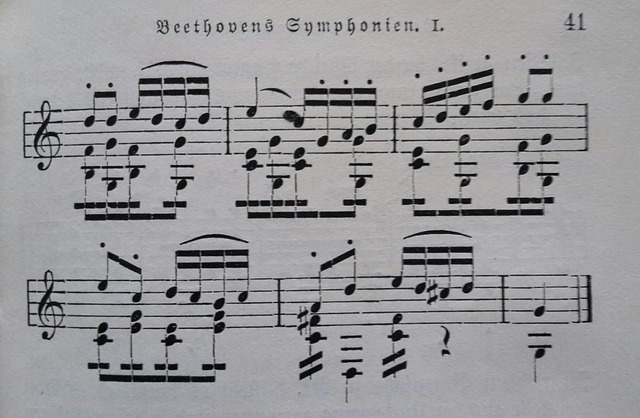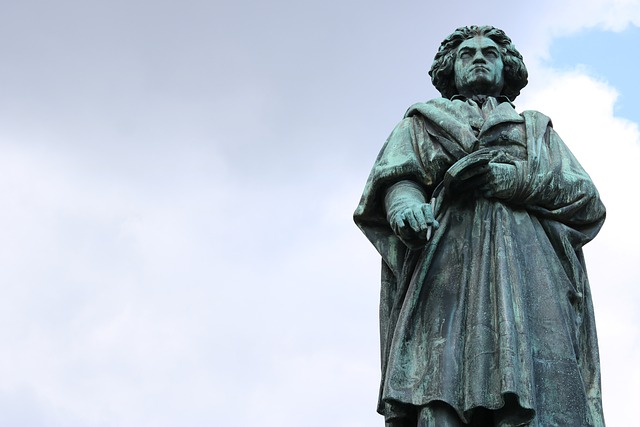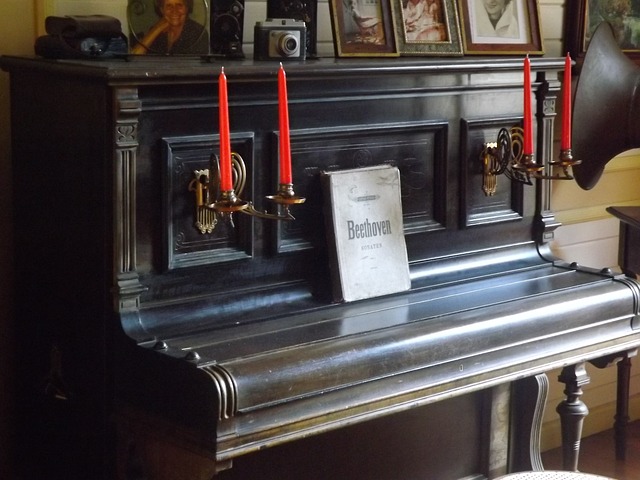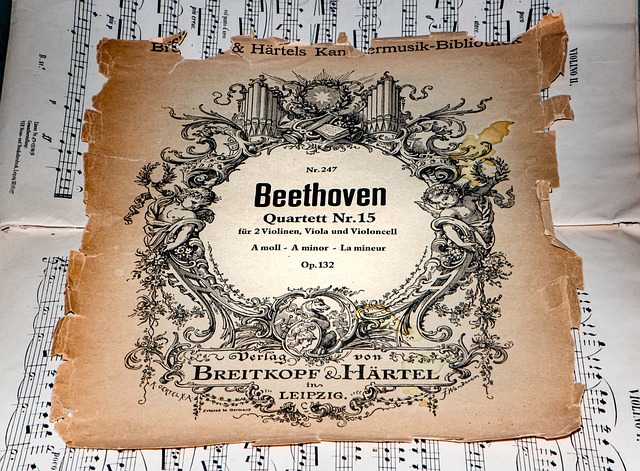
The Best 27 Intriguing Facts about Ludwig Van Beethoven
Facts about Ludwig Van Beethoven
This article explores a treasure trove of fascinating and interesting facts about Ludwig Van Beethoven, bringing to life the genius of the man beyond his scores.
Ludwig van Beethoven, the German composer who revolutionized Western classical music, has intrigued, fascinated, and deeply moved generations of music lovers.
His masterpieces, from the romantic “Moonlight Sonata” to the monumental “9th Symphony,” continue to captivate audiences worldwide.
As a figure of such towering stature in musical history, Beethoven’s life is a captivating saga filled with triumph, tragedy, and mystery.
The Early Echoes: Beethoven’s Early Years
The Beethoven Family
Born into a musical family, Ludwig van Beethoven’s journey into the world of melodies started at a young age. His father, Johann van Beethoven, was his first music teacher.
A hard taskmaster, Johann nurtured the child prodigy to follow in the footsteps of the famous composer Wolfgang Amadeus Mozart.
The Mysterious Birth
One interesting fact is the actual date of his birth. Beethoven’s birth remains unknown.
While his baptism was recorded on December 17, 1770, the date of his birth is conjectured to be December 16, as it was customary in that period to baptize children a day after their birth.
Young Beethoven: A Prodigious Talent
From piano lessons to composing his first composition at an early age, Beethoven’s prodigious talent was evident.
His first public performance was at Bonn Opera when he was only seven, reflecting his virtuoso skills as a young musician.
The Melodic Mastery: Beethoven’s Influences and Work
The Influence of Great Composers
Beethoven was profoundly influenced by great composers. Mozart’s work inspired him as a young man, and later, Franz Joseph Haydn became an instrumental figure in shaping Beethoven’s musical style during his first visit to Vienna in 1792.
Other contemporaries, including Franz Schubert, also left significant imprints on Beethoven’s music.
Beethoven’s Piano Sonatas and Concertos
The piano sonatas and piano concertos of Beethoven form an essential part of his repertoire. These masterpieces, including the widely loved “Moonlight Sonata,” showcase his innovative approach to composition and form.
The Symphony Maker: From the First Symphony to Symphony No. 9

Often hailed as the “Father of the Symphony,” Beethoven’s symphonies marked a transition from the classical style to the romantic era.
His third symphony, “Eroica,” was initially dedicated to Napoleon Bonaparte, but Beethoven furiously erased Napoleon’s name from the title page after learning of his self-proclamation as an emperor.
“Fidelio”: A Testament to Beethoven’s Ideals
Ludwig van Beethoven’s impact on Western classical music is undeniable. While his symphonies, concertos, and piano sonatas are often highlighted, his singular opera, “Fidelio,” deserves equal recognition.
A compelling narrative of love, sacrifice, and a quest for justice, “Fidelio” offers a profound look into Beethoven’s personal ideals and convictions.
Composed over a decade and revised multiple times, “Fidelio” stands out as a singular representation of Beethoven’s dedication and commitment.
The opera originally debuted in 1805 under the title “Leonore,” named after its heroic female protagonist.
It was later retitled “Fidelio” after Beethoven had made significant revisions.
“Fidelio” is set against the backdrop of political oppression, featuring Leonore, a young woman who disguises herself as a man named Fidelio to rescue her unjustly imprisoned husband, Florestan.
The narrative centers around themes of marital love, courage, freedom, and justice, embodying Beethoven’s philosophical leanings.
The score of “Fidelio” reflects Beethoven’s evolving style. It marries his classical sensibilities with the early stirrings of his romantic impulse.
Moreover, “Fidelio” is imbued with dramatic orchestration and choral elements that foreshadow his future symphonic works, such as the monumental Ninth Symphony.
Beethoven’s devotion to the ideals of the French Revolution—liberty, equality, and fraternity—is unmistakably displayed in “Fidelio.”
“Fidelio” Its triumphant finale
Its triumphant finale celebrates the victory of justice over tyranny, embodying Beethoven’s belief in individual freedom and dignity.
The joyous choral ending of “Fidelio” can be seen as a precursor to the famous “Ode to Joy” from his Ninth Symphony.
The success and enduring popularity of “Fidelio” are not just due to its remarkable music, but also its universal themes.
In Leonore, audiences find a symbol of steadfast love and courageous defiance against injustice. Her character embodies a humanist ideal, aligning with Beethoven’s own values.
In conclusion, “Fidelio” is more than just Beethoven’s only opera—it’s a reflection of his philosophical beliefs and musical innovation.
It offers a profound look into the ideals that fueled his work: a steadfast belief in the power of love, the courage to stand against injustice, and an unwavering commitment to freedom.
As such, “Fidelio” remains an essential part of Beethoven’s legacy, illuminating the depth and breadth of his artistic genius.
The Only Opera: Fidelio
Among Beethoven’s famous works, his only opera, “Fidelio,” is considered a landmark in the world of music. This work offers a glimpse into his ideals of freedom and justice.
Beethoven: The Man Behind the Music

The Struggles: Health Issues and Hearing Loss
Beethoven’s life was marked by numerous health issues. He contracted rheumatic fever in his early 20s, which was followed by chronic hepatitis and cirrhosis of the liver.
Most significantly, Beethoven started experiencing hearing loss in his late 20s, which eventually led to total deafness.
Despite this, Beethoven’s hearing loss didn’t stop him from composing some of his greatest works, such as his late string quartets and the iconic 9th Symphony.
Beethoven’s Love Life: The Immortal Beloved
Beethoven’s personal life is as compelling as his musical career. He never married but wrote passionate love letters to several women, most famously to his “Immortal Beloved
,” whose true identity remains a mystery. These letters offer a deeply moving glimpse into Beethoven’s emotional world.
The Heiligenstadt Testament
One of the most poignant episodes in Beethoven’s life was his penning of the Heiligenstadt Testament.
In this letter written to his younger brothers in 1802, Beethoven expressed his despair over his increasing deafness and his determination to overcome his physical limitations.
The End of His Life: Beethoven’s Final Words
Beethoven’s final words reportedly were, “I shall hear in heaven,” a reflection of his undying optimism and enduring love for music.
Decoding the Enigma: A Deeper Dive into Beethoven’s Life
The Foundation: Beethoven’s Father and Family
Ludwig van Beethoven’s father, Johann van Beethoven, was a singer and instrumentalist at the Court of Bonn.
Though he recognized Ludwig’s talent at a young age, his methods were harsh, often using negative comments and rigorous discipline to push the little boy to excel.
His methods, though severe, played a crucial role in shaping Ludwig as one of the world’s greatest composers.
Beethoven’s family had a significant musical lineage, with his grandfather, also named Ludwig van Beethoven, having served as Kapellmeister, or music director, at the Court of Bonn.
His influence on Beethoven’s parents, and subsequently on Beethoven himself, laid the foundation of the young boy’s journey into the world of music.
The Enchanting Melodies: Beethoven’s Musical Creations
The Middle Period: Transition and Triumph
Beethoven’s middle period, also known as his “Heroic Period,” saw the creation of his famed Fifth Symphony and the Sixth Symphony, known as the “Pastoral.”
This period, marked by a transitional period in his style, witnessed a shift from the classical style to the early inklings of the romantic era.
The Piano Sonata No. 14: The Moonlight Sonata

Beethoven’s Piano Sonata No. 14, commonly known as the “Moonlight Sonata,” is one of his most iconic works.
Written in C# minor, its hauntingly beautiful first movement has been lauded for its poetic depth and innovative structure.
The Violin Concerto in D Major
Beethoven’s only violin concerto, the Violin Concerto in D major, is a masterpiece that showcased his genius for orchestration and his ability to create memorable melodies.
The Mysterious Muse: Josephine Brunswick
One of the many women to whom Beethoven wrote love letters, Josephine Brunswick, was reportedly a close friend of Beethoven for a long time.
The nature of their relationship remains a matter of conjecture among scholars.
Beethoven’s Letters and Last Words
Beethoven’s letters offer a glimpse into his private life and emotions.
His last words, which have been variously reported, include a witty comment about his publisher sending him 12 bottles of wine: “Pity, pity, too late!” – showing that even in his later life, he retained a sense of humor.
The Years of Trials: Health Issues and Later Life
The Beethoven House: A Living Testament
The Beethoven House in Bonn, Germany, the composer’s birthplace, now serves as a museum dedicated to preserving his legacy.
This house is a testament to the trials and triumphs of Beethoven’s life, preserving personal belongings, including his letters and instruments.
Health and Theories: Lead Poisoning and Cold Water Treatments
Beethoven’s health issues were manifold and greatly affected his life and work. There is speculation that Beethoven suffered from lead poisoning, contributing to his death.
Another interesting fact about Beethoven is his peculiar habit of pouring cold water over his head to stimulate his mind, a practice he followed even in his later life.
Beethoven’s Symphony of Legacy
The Ninth Symphony: An Ode to Joy
Beethoven’s Ninth Symphony, also known as the “Choral” Symphony, was one of the significant works of his last decade.
It is notable for being the first symphony by a major composer to include a choir and soloists, making Beethoven the first musician to do so.
This masterpiece further cemented his reputation as the greatest composer of his era.
Virtuoso Pianist and Resilient Maestro
Beethoven, known as a virtuoso pianist in his early years, continued to compose remarkable music even after losing his hearing.
His resilience in the face of adversity serves as a testament to his indomitable spirit and love for music.

Facts about Ludwig Van Beethoven Conclusion
Through exploring the tapestry of Beethoven’s life and works, we get a closer look at the man behind the symphonies.
From his early years under his father’s tutelage, his close relationship with Josephine Brunswick, his health struggles, to his significant contributions to the music world, the symphony of Beethoven’s life is as intriguing as it is inspiring.
As we journey through these interesting facts about Beethoven, we gain a deeper appreciation for his mastery and his lasting impact on the world of music. Now read my Interesting Facts About Edgar Allen Poe.
5 FAQs: Uncovering the Symphony of Beethoven’s Life
Who were the significant influences in Beethoven’s life?
Influences in Beethoven’s life and musical career include his father, Johann van Beethoven, and great composers like Wolfgang Amadeus Mozart and Franz Joseph Haydn.
When did Beethoven start losing his hearing?
Beethoven started experiencing hearing loss in his late 20s, which progressed to total deafness over the years.
What was the Heiligenstadt Testament?
The Heiligenstadt Testament was a moving letter Beethoven wrote to his younger brothers, expressing his despair over his increasing deafness and his determination to continue his musical career.
Who was the ‘Immortal Beloved’?
The ‘Immortal Beloved’ was the unnamed recipient of Beethoven’s passionate love letters. Her true identity remains a mystery to this day.
What were Beethoven’s final words?
Reportedly, Beethoven’s final words were, “I shall hear in heaven.”
Facts about Ludwig Van Beethoven Conclusion
From his early years as a child prodigy to his twilight years marked by deafness and declining health, Ludwig van Beethoven’s life was as dramatic and intense as his music.
His body of work, which includes piano sonatas, concertos, and symphonies, stands as a testament to his musical genius.
Beethoven’s life, marked by personal hardships and triumphant achievements, continues to inspire musicians and music lovers worldwide.
Exploring these interesting facts about Beethoven not only enriches our general knowledge about this great composer but also deepens our appreciation of his enduring contribution to the world of music.
Sources:
Lockwood, Lewis. Beethoven: The Music and the Life. W.W. Norton & Company, 2005.
Morris, Edmund. Beethoven: The Universal Composer. Harper Perennial, 2010.





3 Comments
Pingback:
Pingback:
Pingback: